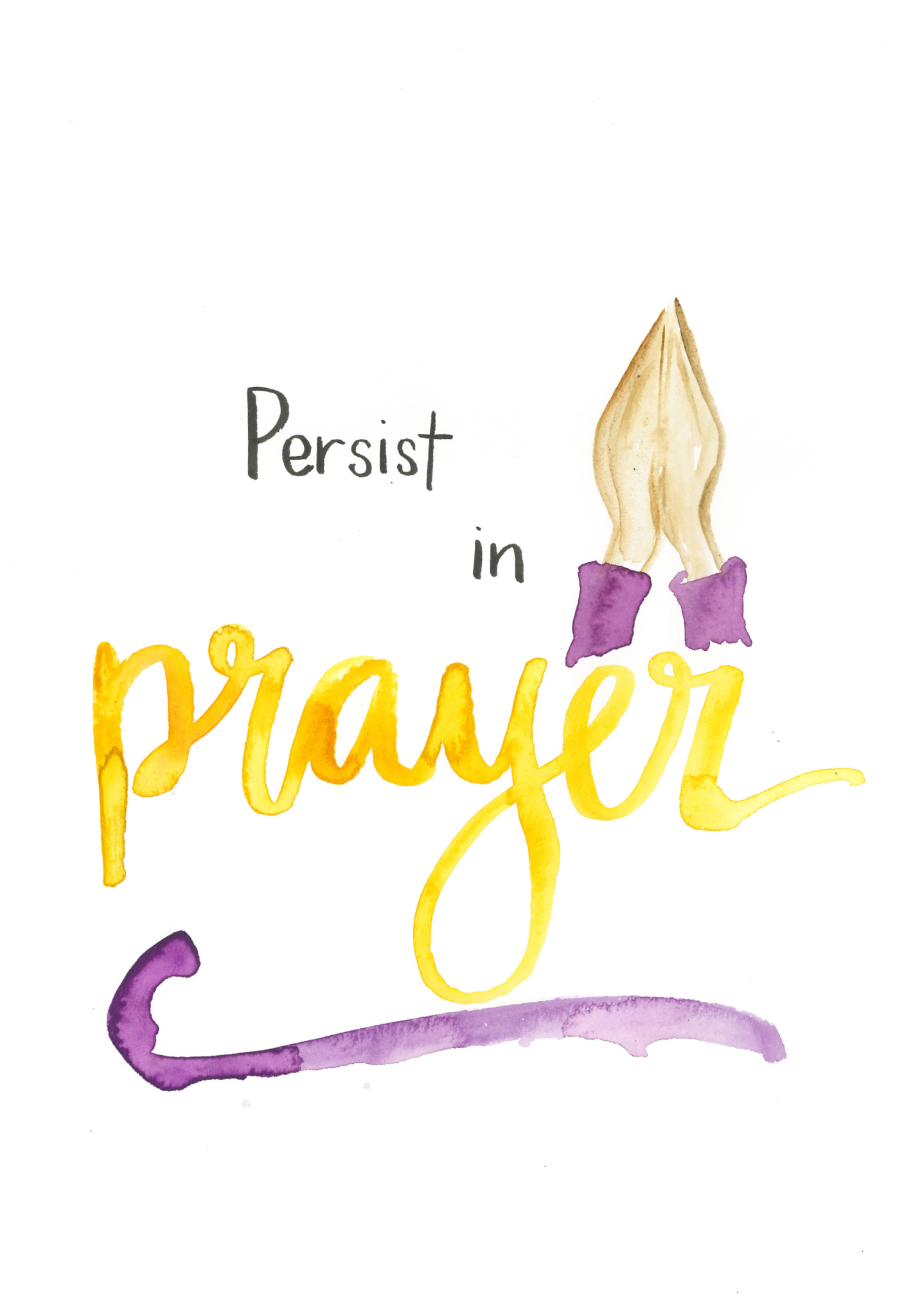In the parable of the persistent widow, Jesus teaches his disciples that justice has its source in God. Though many barriers exist in the world that prevent us from receiving or experiencing justice, we get justice by petitioning the one who brings about justice on the earth. As Jesus instructs in Luke 18:1-8, we are called to be persistent in prayer, persistent in seeking justice, and resilient in everything we do.

She is Called Women of the Bible Study Vol. 2
The Persistent Widow
How Prayer Changes Things
By Pastor Peter Watts
Prayer
We come to you, O God, day and night, seeking your face and longing to hear your voice. Lord, hear our prayers. Amen.
Key Scripture
“Then Jesus told his disciples a parable to show them that they should always pray and not give up.” – Luke 18:1 (NIV)
Introduction to the Parable of the Persistent Widow
Jesus uses this parable to teach his disciples never to give up. He shows them the importance of persistence and resilience. He knows that life involves disappointment, loss, injustice, and persecution—all very good reasons to give up and lose hope! But a life attuned to God’s presence, justice, and goodness is a life that can endure.
According to Mosaic law, judges were to give special attention to widows, primarily because of their dependence upon men. When the husband died, a widow was left at the mercy of relatives and the eldest son to provide for her. It would be uncommon for a widow during this time to be able to advocate for herself. Men were the ones who would do that kind of work on behalf of their families. As a widow, she was one of the marginalized in her society. Most widows were targets of oppression and fraud. However, her marginalized status did not stop her in her pursuit of justice.
The widow in this parable functions as a model for discipleship with respect to persistent prayer. She goes before the unjust judge with her petition over and over, not taking no for an answer. She was resilient and she was faithful to what she believed in. She was persistent in her pursuit of justice.
Digging Deeper: Resilient Prayer for Justice in Luke 18
The woman in this parable represents what it means to be a positive example of the persistence required of believers in prayer. Some of us may have experiences of the justice system analogous to the persistent widow. Recent events have shone an even brighter light on the disparities in experience of law enforcement and the justice system that flow along racialized lines. Thus, many do not trust in the justice system to provide the justice we seek. But, ultimately, this parable reminds us we must trust that God will bring about God’s justice on the earth.
That doesn’t mean we shouldn’t pursue justice diligently as God’s ambassadors of mercy and peace. To the contrary! This parable is about those characteristics of resilience that develop when we decide never to give up, even in face of the insurmountable obstacles before us. Resilience is the strength of character to keep going even when we encounter challenges. It can be grown or developed, like a muscle.
Resilience manifests itself individually and collectively. When we talk about being resilient and having the strength of character not to give up, being resilient can be done individually by encouraging yourself. You can find it within yourself to keep going, even when it seems that all odds are stacked against you. This is why Jesus tells the story “to show them that they should always pray and not give up.” Prayer cultivates perseverance. And, what is more, within you is the Spirit of God, who intercedes on your behalf.
Resilience can also be experienced in the community. It’s the idea that those who are on your side and know your story can come to support you through prayer, words of encouragement, and by physically coming to your aid to help with your needs.
The judge in the parable does not represent God. The judge is unjust and doesn’t care about what this widow needs. Jesus tells this parable to his disciples to help them understand that if this judge who is unjust finally listens to the woman’s request and grants her justice, how much more will a loving and just God answer the petitions of his own children who cry out for help.
This widow’s persistence illustrates our need to pray without ceasing (1 Thessalonians 5:17). Prayer changes us more than it changes the people around us. It deepens our faith and trust in God and empowers us to wait with hope for God to act. It’s the reason why Jesus ends the parable to his disciples with the question of whether or not the Son of Man will find anyone faithful when he comes—which is to say, as Eugene Peterson put it, “will He find men and women who are still praying, who have not given up, who have not lost heart?”1
This gospel passage thus challenges us not just to pray but to trust in God. Even when the justice that we seek does not come immediately, will we have enough faith to endure until change happens?
She Is Called and We Are Called
The persistent widow is an example of the oppressed and marginalized in our society. The judge is the earthly powers of privilege that stand in the way of those seeking justice and equity. Her persistence and resilience illustrates our need to go before God, who fights for justice on our behalf, and also to pursue justice in earthly channels. We may not see the full picture of a just society in our lifetimes, but we can continue praying, seeking, knocking, and asking God to vindicate in all areas of our lives.
Just like an Olympic athlete who is injured during a race and picks herself up and keeps going to the finish line, we, too, are to keep Praying Until Something Happens (P.U.S.H.). God’s delay does not mean denial. Even if what you have been in need of has not come to pass, the fact that you wake up to see another day gives you another opportunity to press forward in your request. We may not win every battle we fight in this life, but with God on our side and because of his death, burial, and resurrection, we will have the ultimate victory, partly in this life but completely in the life to come.
Conclusion
This widow had no advocate to speak on her behalf, which left her in a hopeless state. But rather than giving up, she was relentless in her pursuit of justice. The unrighteous judge finally gave in to her plea because he knew that she would not stop coming to him until she received justice. Resilience manifests itself both in being and doing. Resilience is more than something you do; it is who you are. It’s about understanding that your strength comes from the power of the Spirit of God that is in you. It is the inner core of strength from which action in the world comes. At the same time, once you learn to be resilient, you can sit in the midst of a storm and be still.
Discussion Questions
- In your own words, how is the widow resilient? Can you relate? Why or why not?
- Can you pray continuously even when God’s response is delayed?
- Can you think of something worth a lifetime of persistent faith and prayer?
- What surprised you in this Bible study session?
- What do you hear the Spirit saying to you/your family/your church/your community?
References
[1] Eugene Peterson, Tell It Slant: a conversation on the language of Jesus in his stories and prayers (Wm. B. Eerdmans: Grand Rapids, Michigan, 2008), 125.
Pastor Peter Watts was born and raised in South Los Angeles and is a graduate of Cal State Dominguez Hills where he received his BA in mass communications. He also holds a master’s of education in administration and leadership degree from University of Phoenix and a master’s in theology from Fuller Seminary, where he is currently pursuing a doctorate. He has more than 20 years of educational experience, including teaching and serving as the founding principal of Thurgood Marshall Middle School, a blended learning and project-based focus school. Peter currently pastors The Rock Church in Los Angeles, California, and serves the Reformed Church in America as the supervisor for Advocacy and Race Relations and the coordinator for the African American Black Council. He has been married to his wife, Didi Watts, for more than 26 years and has three children: Jasmin Anderson, Avery Watts, and Imani Watts.
Continue this Bible study as a book
Get your copy of the She Is Called Women of the Bible Study Vol. 2

This Bible study is from the second book in the Women of the Bible Study Series. Get the book to discover how women like Mary and Martha, Abigail, and Junia embraced God’s call for their lives.